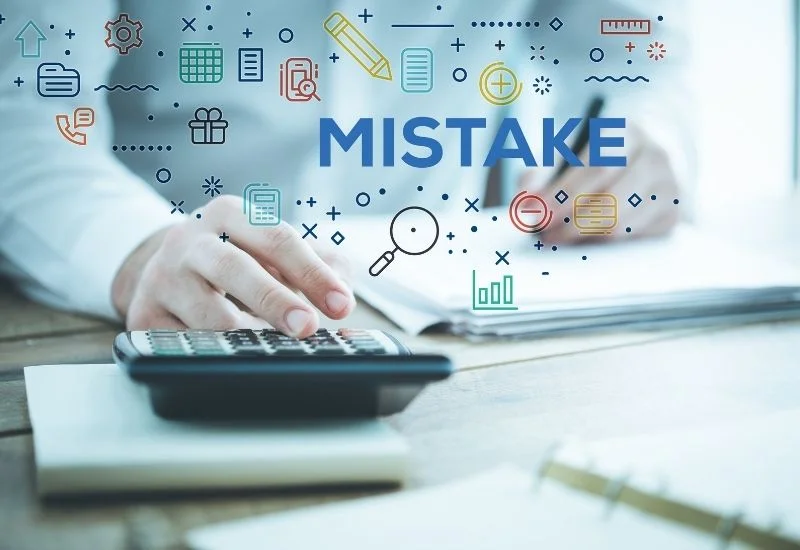Sales training is key to building a strong, successful team; nevertheless, many companies make mistakes along the road. Mistakes like unclear goals, outdated techniques, or neglecting the team’s specific needs, can hold back even the most gifted salespeople. The true challenge is making sure that every team member feels safe, ready, and motivated. And while the right motivation for sales team is essential, it is easy to overlook how important it is to train your team in an effective and engaging way. This article will examine typical sales training mistakes and what professionals advise to avoid, allowing your team to maximise performance.

13 Sales Training Mistakes:
Focusing Solely On Product Knowledge:
Knowing your product inside out is vital, but it’s not enough to close the deal. Salespeople must also know how to interact with clients, ask questions appropriately, and address concerns. If training focuses solely on the characteristics and advantages of a product, salespeople may find it difficult to build rapport or handle real problems. Training should strike a balance between knowledge of products and skills such as active listening, empathy, and adaptability. Your sales personnel will therefore not only be familiar with the product but also with how best to present it.
Neglecting To Tailor Training To Individual Needs:
Not customising training to fit personal requirements is another frequent mistake. Every salesman is unique; some may be outstanding at closing transactions but find it difficult to start a conversation; others may be excellent listeners but want assistance with product knowledge. When training is one-size-fits-all, it might fall short for team members who require different support. According to experts, one should learn the strengths and shortcomings of every salesman and modify the training to fit. In this way, everyone may grow in the fields most important to them; this allows the entire team to flourish.
Ignoring Soft Skills Development:
Ignoring soft skill development in favour of hard skills like product expertise might result in yet another major sales training mistake. Soft skills—communication, empathy, problem-solving—are just as vital as product knowledge. A lack of these skills could make salespeople unable to establish trust or connect with clients. In addition to technical expertise, good sales training should help develop these vital soft skills. Listening, understanding customer requirements, and providing genuine, helpful responses are skills that turn one-time purchases into loyal customers.
Relying Too Much On Theoretical Knowledge:
Another mistake many firms make is depending too much on theoretical knowledge. Though knowledge of sales methods and procedures is crucial, theory by itself cannot ensure success. Salespeople must use what they discover in practical environments. Training might feel disconnected from the real job if it is just about theoretical concepts without any practical experience. Professionals advise combining real-world client encounters, role-playing, and theory with practical exercises. This enables salespeople to become more ready for real-world sales calls and meetings by helping them develop confidence and understand how their knowledge fits.
Skipping Regular Follow-ups And Assessments:
Ignoring regular follow-ups and assessments is a mistake that may leave your sales force unprepared. Sales training doesn’t stop after a few meetings; you should always be checking in with your staff. Regular follow-ups help one to determine if they are using what they have learned or whether they are encountering new problems. Regular assessments, help to monitor development, pinpoint areas needing work, and modify training as necessary. This makes sure that everyone is still developing and keeps everyone on track so they don’t forget training.
Lack Of Real-world Examples:
Though theory and practice are crucial, salespeople may find it difficult to understand how to apply what they have learnt without real-life examples. Experts advise using case studies, role-playing exercises, or even examples from your own business. Demonstrating how a plan worked—or didn’t work—in real circumstances helps the team to relate more to the training and understand precisely how to address problems they could have on the job.
Underestimating The Role Of Technology:
Sales teams now have access to technologies such as CRM software, email automation, and data analytics that could streamline and speed up their work. Should you not train your team to use these tools effectively, salespeople may overlook opportunities to simplify their work or get insightful analysis. Adopting technology enables sales teams to stay organised, monitor development, and more clearly grasp consumer needs. Without it, companies can be left behind, struggling to keep up with competitors that use technology to their advantage.
Failing To Address Objection Handling:
Customers probably have questions or uncertainties in every sales communication. Salespeople can quickly lose their opportunity to seal the deal if they are not ready to react. Whether it’s about pricing, value, or product features, training should include techniques for gently and boldly handling objections and concerns. Learning how to transform a “no” into a “yes” can make all the difference. Salespeople without this skill might find themselves stuck, not knowing how to keep the consumer trusting them or continuing the discussion.
Training Without Clear Goals:
training without well-defined objectives is another typical mistake that could cause uncertainty and ineffective outcomes. Your team will struggle to know what they are aiming for if your sales training lacks clear, quantifiable goals. Are they aiming to improve closing rates? Build stronger relationships with customers? Without well-defined objectives, training may look useless and may not have the effect it should. Clearly defined goals enable salespeople to measure their development, focus on what counts, and remain motivated to produce better outcomes. It’s an easy approach to make sure your training is efficient and really makes a difference.
Neglecting Emotional Intelligence (EQ):
One of the main blunders in sales education is ignoring emotional intelligence (EQ). Sales is about understanding people, not just about the goods. EQ enables salespeople to connect with clients, understand emotions, and control their own responses in challenging circumstances. They may find it difficult to develop trust or manage challenging communications without it. High emotional intelligence salespeople can empathise with consumer concerns, modify their approach, and improve the purchase experience. Training that ignores EQ overlooks a fundamental component of what makes salespeople effective in the real world—where understanding people is just as vital as understanding the products.
Ignoring Feedback From Sales Teams:
Salespeople are on the front lines, regularly contacting customers. Many times, they are precisely aware of what is working and what is not. Ignoring their feedback might cause you to overlook valuable insights on how the sales or training process could be improved. Frequent feedback requests help in keeping the training up-to-date and efficient. It also demonstrates to your team that their experiences count, thereby strengthening morale and making them feel more involved in the process.
Not Updating Training Content Regularly:
Technology, consumer requirements, and sales methods are continually evolving, so training materials can quickly become obsolete. Your team’s effectiveness may suffer if they still use old methods that are ineffective. Frequent updates of the training materials help your salespeople remain sharp and ready for current challenges. It makes sure that they are picking the most up-to-date tools, techniques, and approaches that will help them succeed. Keeping things fresh not only yields better outcomes but also demonstrates to your staff your commitment to their development and success.
Overlooking Leadership’s Role In Reinforcing Training:
One mistake that is often made is ignoring the role leadership plays in supporting training. Managers and team leaders are vital in making sure that training isn’t just something individuals forget about after a session. They should be rather active in helping and motivating their team to use their new skills. Frequent check-ins, offering feedback, and leading by example all support what has been taught. Leadership engagement in the process signals to the team that the training is valuable and must be applied. Even the best training might lose its effects without this continuous assistance; salespeople may find it difficult to use their newly acquired abilities.
Why Choose Frontline Sales Training to Avoid These Mistakes?
Selecting Frontline Sales Training means that you are making a wise choice in avoiding the common errors that could hinder your team. We understand that effective sales training goes beyond theory. We focus on practical experience, emotional intelligence, and hands-on learning to equip your staff for any situation. Regular updates and a strong emphasis on leadership support help us to ensure that the training keeps evolving with your company’s demands. At Frontline Sales Training, we help you create a sales culture that drives success and keeps your team motivated to perform at their best, not just imparting knowledge.




